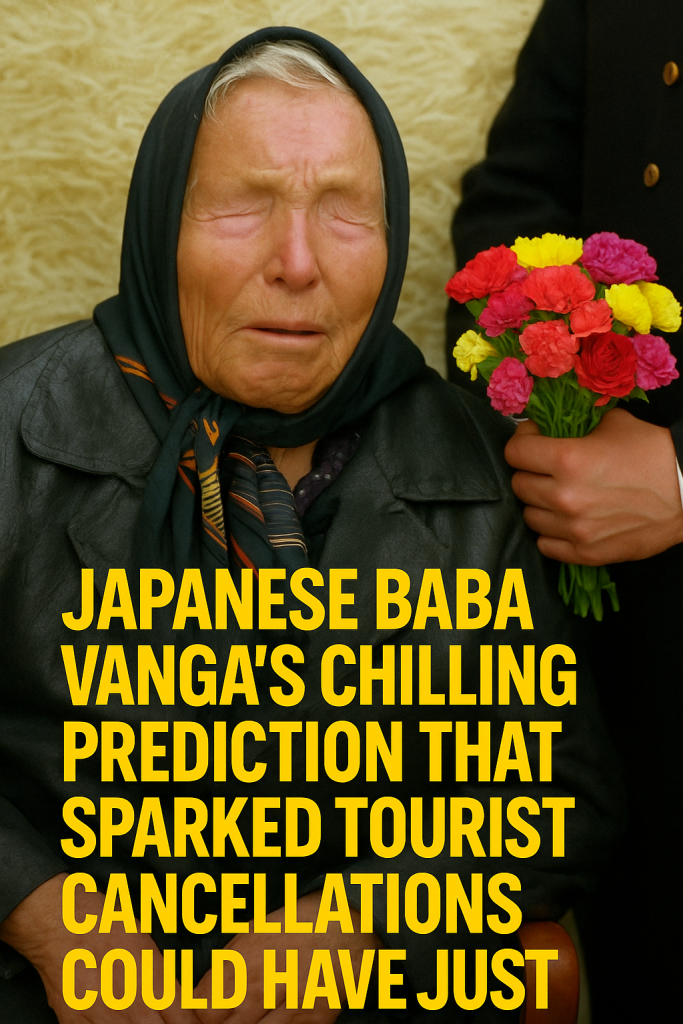In a chilling twist that has sent ripples across social media and travel communities worldwide, a long-anticipated prediction attributed to a figure dubbed the “Japanese Baba Vanga” appears to have come true—two days ahead of schedule. The forecast, which had previously sparked a wave of tourist cancellations to Japan this year, now seems to mirror recent unsettling developments in the country’s tourism industry, raising eyebrows and igniting curiosity about what lies ahead.
The prophecy in question involves a cryptic warning issued earlier this year that Japan would face an unforeseen disruption causing a sharp decline in tourism during mid-June 2024. This prediction induced concern among travelers and travel agencies alike, leading to a noticeable spike in flight and hotel booking cancellations nationwide. The forewarning reportedly came from a reclusive spiritual figure revered in Japan for her alleged uncanny ability to foresee future events—earning her the nickname reminiscent of Bulgaria’s famous seer Baba Vanga.
What makes this situation particularly striking is the timing: the negative trend in tourist arrivals and engagement has not only materialized, but it has done so ahead of the predicted date. Just days ago, Japanese tourism authorities reported a sudden dip in inbound tourist numbers, with several popular destinations experiencing cancellations ranging from guided tours to cultural events.
Industry insiders suggest this unexpected early manifestation of the prediction has compounded anxiety among local businesses and officials, who were already on alert after monitoring declining tourism metrics following the prophecy’s announcement. The decline comes at a sensitive time when Japan is still recovering from pandemic-related setbacks and eagerly seeking to bolster its economy with foreign visitors.
Experts weigh in on possible causes behind the abrupt downturn. While some attribute it to lingering global travel uncertainties and geopolitical tensions, others speculate that the “prophecy effect” itself has created a self-fulfilling pattern—where widespread belief in the prediction has discouraged many potential tourists. There are also suggestions that recent climate irregularities and sporadic transportation strikes in Japan could be adding to travelers’ apprehensions, compounding the impact.
The “Japanese Baba Vanga” phenomenon has thus become more than just a curiosity; it highlights how modern travelers and markets can be influenced by cultural narratives and digital amplification of forecasts, even those steeped in mysticism. On social media, conversations have surged, with many users debating whether the prediction is a coincidence, an eerie premonition, or a manifestation of crowd psychology.
For tourists still considering Japan as a destination, authorities emphasize that the country remains safe and welcoming, with no official disruptions warranting concern. Travel agencies have also launched initiatives to reassure visitors, showcasing Japan’s unmatched cultural experiences, scenic beauty, and robust health and safety measures.
Meanwhile, as the days unfold, all eyes will be on Japan’s tourism figures and any further developments that might either confirm or contradict the “Japanese Baba Vanga’s” ominous forecast. Whether mystery or reality, it is certain that this early sign has profoundly impacted perceptions and decisions, illustrating the potent blend of folklore and modern travel trends in shaping our world today.



